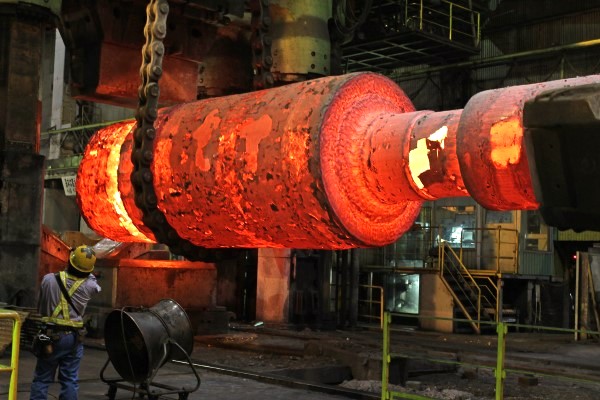For the meeting, the committee—chaired by TAIRA Masaaki of the Liberal Democratic Party (LDP)—invited several experts and specialists, including KUROKAWA Kiyoshi, emeritus professor at the National Graduate Institute for Policy Studies (GRIPS), and the former chair of Fukushima Nuclear Accident Independent Investigation Commission (NAIIC) of the National Diet of Japan. Kurokawa also took part in a Q&A session that primarily dealt with the ideal form of nuclear energy administration in Japan.
During the past year, important bills were enacted by the Diet—including a package of energy-related measures bundled as the GX Decarbonization Power Supply Bill—as part of an improved legal framework for nuclear power and energy in Japan. Its purpose was to establish an electricity supply system leading to the realization of a decarbonized society. The law not only revised the Atomic Energy Basic Law, but also incorporated the tightened regulation of aging reactors on account of the extension of operating reactor lifetimes.
Kurokawa has been voicing his opinions about rebuilding the country’s nuclear energy administration during the 13 years that have elapsed since the nuclear accident at Fukushima Daiichi of March 2011 and after the NAAIC had completed its investigations. Attending the meeting of the special committee again this time after a hiatus of two years, he looked back on his experiences interacting with people overseas by saying, “In fact, nothing in Japan has changed much”―referring to what he deems a severe situation.
Also participating in the meeting was ISHIBASHI Satoshi, representative director of Klotho Partners, Inc., a supporter of Kurokawa at the NAIIC who is also engaged in efforts to enlighten the younger generation. Mentioning NAIIC’s recommendations, he said that the Diet had made only one reference to them in the two years since it first got them, and that was just for “ten seconds.” He said that he feared that the awareness of the commission’s activities had deteriorated.
Ishibashi then speculated that the Diet, instead of having somehow been unable to act, had simply not acted. In line with that, he criticized Diet members by citing a phrase from a conversation between Socrates and Crito in “The Apology of Socrates”: “Are you not ashamed?” He then ended his comments by urging the public to raise its awareness.
Next to speak at the meeting was President KIKKAWA of the International University of Japan (IUJ), who had earlier attended meetings of the Advisory Committee for Natural and Energy. He identified three issues pertaining to nuclear energy faced by the country, as follows:
- Restarting TEPCO’s Kashiwazaki Kariwa-6 and -7 nuclear power plants (ABWRs, 1356MWe each).
- Constructing next-generation advanced reactors.
- The nuclear share in the next Strategic Energy Plan.
As for restarting the Kashiwazaki Kariwa NPPs, Kikkawa pointed specifically to the difficulty in obtaining local understanding owing to the adverse effects of the Noto Peninsula Earthquake on New Year’s Day 2024.
He then suggested the following energy mix be established by 2040: 45% for renewable energies, 30% for nuclear power, 5% for hydrogen and ammonia, and 20% for coal-fired power. Eyeing the power market of the future, he said that “new uses” of nuclear energy were essential and that utilizing it to supply carbon-free hydrogen was an important choice.
Another meeting participant was SATO Satoshi, a consulting engineer known for his very exacting views on the development of nuclear technology. He first referred to the favorable economics of extending reactor operating lifetimes in Japan and improving outputs in comparison with the current situation in the United States. He also asserted that nuclear operators and the regulatory authority in Japan should take aim in their respective roles at a period covering the next decade.
Meanwhile, SUZUKI Tatsujiro, director of the Research Center for Nuclear Weapons Abolition (RECNA) at Nagasaki University, and former member of the Japan Atomic Energy Commission (JAEC), spoke about backend issues. Looking back on discussions at JAEC’s Special Committee on High Level Radioactive Waste Disposal in the 1990s―informative activities staged around the country with critic KIMOTO Noriko―he pointed out that the recent situation “lacks transparency.”
Suzuki emphasized that there was “still room for improvement” in activities to enhance public understanding—although some municipalities are applying for literature surveys—given the usefulness of the Map of Scientific Features and the results of a recent opinion survey conducted by the Japan Atomic Energy Relations Organization (JAERO).
He also referred to the importance of the Diet’s role and proposed amendments to laws, including one proposal that the jurisdiction for high-level radioactive waste (HLW) disposal be transferred from the Ministry of Economy, Trade and Industry (METI) to the Ministry of the Environment.
In response to the remarks by the invited experts, a member of the special committee, HOSODA Kenichi (LDP), stated his recognition that one of the NAIIC’s recommendations—“monitoring of the nuclear regulatory body by the National Diet”―was an important mission of the Diet. Given recent circumstances, he raised questions about such matters as anti-terrorism measures vis-à-vis design standards and the ill effects of excessive regulation.











